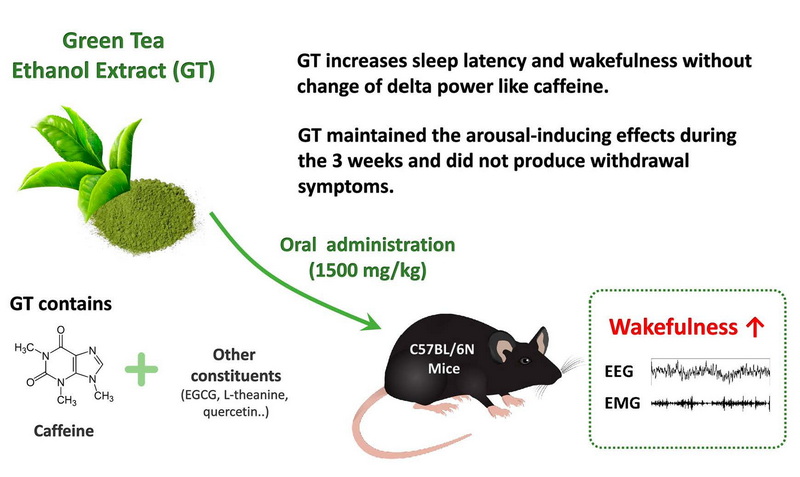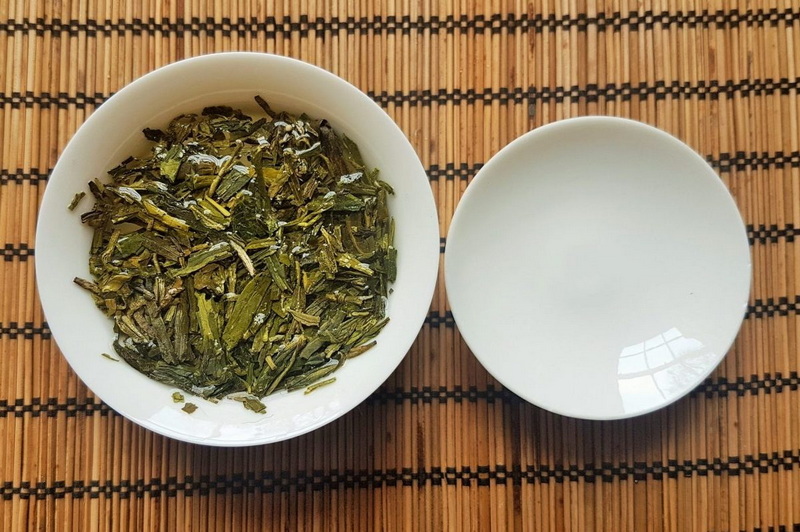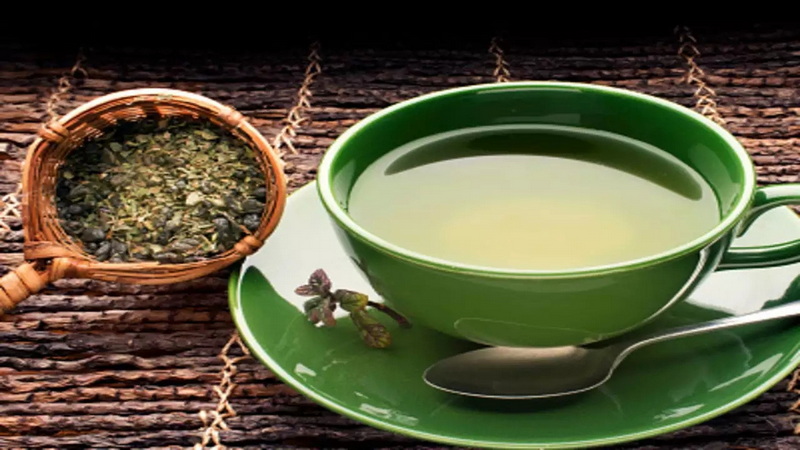Content Menu
● What Is Green Tea Extract?
● The Hidden Risks of Green Tea Extract
>> 1. Liver Damage
>> 2. Drug Interactions
>> 3. Caffeine Overload
>> 4. Gastrointestinal Issues
>> 5. Risk of Overconsumption
● Who Should Avoid Green Tea Extract?
● Safer Alternatives to Green Tea Extract
● Understanding the Science Behind Green Tea Extract
>> Catechins and Their Role
>> Caffeine Content
● Regulatory Actions and Safety Measures
● Consumer Awareness and Education
● Conclusion
● FAQ
>> 1. Can green tea extract cause liver damage?
>> 2. Is it safe to take green tea extract daily?
>> 3. Does green tea extract interact with medications?
>> 4. What are the symptoms of caffeine sensitivity from GTE?
>> 5. How can I safely consume green tea?
● Citations:
Green tea extract (GTE) is widely marketed as a natural supplement with numerous health benefits, including weight loss, improved heart health, and antioxidant properties. However, its concentrated form has raised safety concerns due to potential adverse effects on health. This article delves into the risks associated with green tea extract, supported by scientific evidence, and explains why it might not always be the best choice for supplementation.

What Is Green Tea Extract?
Green tea extract is derived from the leaves of Camellia sinensis, the same plant used to make green tea. Unlike the beverage, the extract is highly concentrated, containing potent levels of catechins (such as epigallocatechin gallate or EGCG) and caffeine. These compounds are believed to be responsible for its health benefits but also contribute to its potential risks.
The Hidden Risks of Green Tea Extract
1. Liver Damage
One of the most concerning risks of GTE is its potential to cause liver toxicity. Studies have linked high doses of green tea extract to liver injury, including hepatitis and jaundice. Regulatory bodies in France and Spain have even suspended certain GTE-containing products due to hepatotoxicity concerns.
- Mechanism: The catechins in GTE can cause oxidative stress and inflammation in liver cells, particularly when consumed on an empty stomach.
- Evidence: A systematic review analyzed 216 case reports of adverse effects from green tea products, with 34 cases involving liver damage.
2. Drug Interactions
Green tea extract can interfere with medications by altering their absorption or effectiveness:
- Beta-blockers: GTE reduces blood levels of nadolol, a drug used for high blood pressure.
- Cholesterol-lowering drugs: It may decrease the efficacy of atorvastatin.
- Osteoporosis medication: GTE interacts with raloxifene, reducing its therapeutic effect.
These interactions make GTE risky for individuals on prescription medications.
3. Caffeine Overload
Although green tea contains less caffeine than coffee, its concentrated extract can lead to caffeine-related side effects such as:
- Insomnia
- Anxiety
- Heart palpitations
- Digestive discomfort
For those sensitive to caffeine, even moderate doses of GTE can exacerbate these symptoms.
4. Gastrointestinal Issues
High doses of GTE can irritate the gastrointestinal tract, causing nausea, diarrhea, and abdominal pain. These side effects are more common when GTE is consumed in excess or on an empty stomach.
5. Risk of Overconsumption
The "more-is-better" mindset often leads people to take excessive amounts of green tea extract supplements. This can result in:
- Toxic levels of catechins
- Increased risk of side effects like headaches and irregular heartbeat
- Long-term health complications
Who Should Avoid Green Tea Extract?
Certain groups are more susceptible to the adverse effects of GTE:
1. Individuals with Liver Conditions: Pre-existing liver diseases can worsen with GTE supplementation.
2. Pregnant or Breastfeeding Women: The high caffeine content may harm fetal development or pass through breast milk.
3. People on Medications: Those taking drugs for blood pressure, cholesterol, or osteoporosis should avoid GTE due to interactions.
4. Caffeine-Sensitive Individuals: Even small amounts may trigger severe side effects.

Safer Alternatives to Green Tea Extract
If you're looking for the benefits of green tea without the risks:
1. Drink Green Tea: The beverage form is less concentrated and safer for regular consumption.
2. Choose Decaffeinated Options: These reduce the risk of caffeine-related side effects.
3. Consult a Doctor: Always seek medical advice before starting any supplement.
Understanding the Science Behind Green Tea Extract
Catechins and Their Role
Catechins, particularly EGCG, are the primary active compounds in green tea extract. They are known for their antioxidant properties, which can help protect against cell damage and inflammation. However, in high concentrations, these compounds can also contribute to adverse effects.
- Antioxidant Activity: Catechins can neutralize free radicals, potentially reducing the risk of chronic diseases like cancer and heart disease.
- Potential Risks: High doses of catechins may lead to oxidative stress, contributing to liver damage and other health issues.
Caffeine Content
While green tea naturally contains less caffeine than coffee, the extract form can be highly concentrated. This makes it crucial to monitor caffeine intake, especially for those sensitive to its effects.
- Caffeine Sensitivity: Some individuals may experience adverse effects from even small amounts of caffeine, including jitteriness and insomnia.
Regulatory Actions and Safety Measures
In response to safety concerns, several countries have taken regulatory actions:
- France and Spain: Both countries have banned certain GTE products due to reports of liver toxicity.
- United States: The FDA monitors adverse event reports but does not regulate dietary supplements as strictly as pharmaceuticals.
Consumer Awareness and Education
To minimize risks, consumers should be aware of the potential side effects and take precautions:
- Read Labels Carefully: Check for caffeine content and recommended dosages.
- Consult Healthcare Professionals: Before starting any supplement, especially if you have pre-existing health conditions or take medications.
Conclusion
While green tea extract offers potential health benefits, its risks—especially at high doses—cannot be ignored. Liver toxicity, drug interactions, and gastrointestinal issues are among the most serious concerns. For most people, consuming moderate amounts of green tea as a beverage is a safer option than taking concentrated supplements.

FAQ
1. Can green tea extract cause liver damage?
Yes, high doses of green tea extract have been linked to liver injury in some cases. Symptoms include jaundice, abdominal pain, and dark urine.
2. Is it safe to take green tea extract daily?
Taking small doses may be safe for some individuals; however, prolonged use or high doses can lead to side effects such as liver damage and gastrointestinal issues.
3. Does green tea extract interact with medications?
Yes, GTE can interfere with drugs like beta-blockers (e.g., nadolol), cholesterol-lowering medications (e.g., atorvastatin), and osteoporosis treatments (e.g., raloxifene).
4. What are the symptoms of caffeine sensitivity from GTE?
Symptoms include insomnia, anxiety, rapid heartbeat, nausea, and restlessness.
5. How can I safely consume green tea?
Drinking brewed green tea in moderation (up to 8 cups daily) is generally safe for most people. Avoid taking concentrated extracts unless recommended by a healthcare professional.
Citations:
[1] https://www.medicalnewstoday.com/articles/269538
[2] https://pubmed.ncbi.nlm.nih.gov/18484782/
[3] https://pubmed.ncbi.nlm.nih.gov/21538851/
[4] https://www.webmd.com/diet/health-benefits-green-tea
[5] https://www.webmd.com/vitamins/ai/ingredientmono-960/green-tea
[6] https://www.canada.ca/en/health-canada/services/food-nutrition/public-involvement-partnerships/notice-modification-list-permitted-supplemental-ingredients-permit-use-green-tea-extract-supplemental-ingredient-foods/document.html
[7] https://www.nccih.nih.gov/health/green-tea
[8] https://www.healthline.com/nutrition/top-10-evidence-based-health-benefits-of-green-tea
[9] https://www.vumc.org/poison-control/toxicology-question-week/march-12-2021-what-are-adverse-effects-green-tea-extract
[10] https://www.healthline.com/nutrition/10-benefits-of-green-tea-extract

 English
English 




























